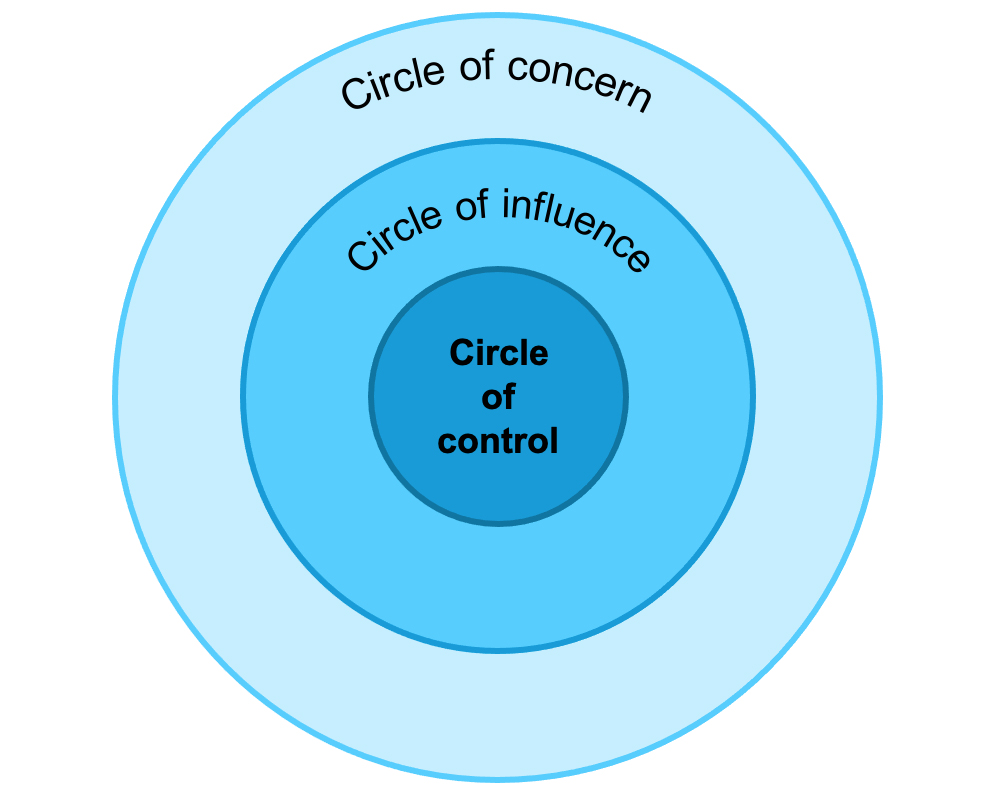
Circle of concern
There are things that are encountered in work, and in life in general, that will impact on an individual and are therefore of concern, but are not able to be controlled and influenced. An example of something that will likely be encountered in pharmacy practice where there is no influence or control over it, is the naming of medicines. Look-alike, sound-alike (LASA) errors can arise as a result of two medicines having a similar name.An example of a common LASA error, as identified by NHS Improvement, is the confusion of rivaroxaban and rosuvastatin.
Pharmacy professionals don’t have any influence or control over the naming of these medicines. Although it may be frustrating that the names are similar, if individuals spend time and energy thinking about the naming of these medicines, this won’t help in reducing the risk associated with the confusion of them. More information about LASA errors can be found in CPPE’s Reducing look-alike, sound-alike errors (LASA) e-learning programme.
There will be things that are encountered in pharmacy practice that individuals do not have direct control over but that they are able to influence. Using the example of rivaroxaban and rosuvastatin, one potential action to reduce risk of LASA errors is to physically separate these two medicines. If the medicines in the dispensary are organised alphabetically, this would require one of the items to be stored in a place that is not in line with the standard storage system. It may be that an individual is in a position to make this change, for example, if the pharmacy or dispensary manager, but it is also possible that they are not. Even without control over the way in which medicines are stored in the dispensary, individuals can influence a change in practice by suggesting this approach to colleagues who are in control of the dispensary layout.
It should be noted that any changes made to systems such as this, should be reviewed to ensure that they are having the intended effect and not leading to more errors.
There will be things encountered in pharmacy practice that individuals do have direct control over. Although these things will likely be fewer in number than those in their circles of concern and influence, this is where individuals have full control over how they can make an impact.
Again, thinking about LASA errors, something that individuals will have control over is their health and wellbeing at work. One potential action to reduce the risk of LASA errors is to avoid fatigue. Individuals have control over this by ensuring that they take the breaks that they are entitled to and recognising when they are becoming fatigued. They may find that they benefit from a change in task if they are undertaking something that is repetitive. For example, when accuracy checking, someone may find that they benefit from pausing every half an hour to put stock away. This may seem challenging if working in a busy environment, but it is vital for individuals to ensure they are able to undertake tasks safely.
